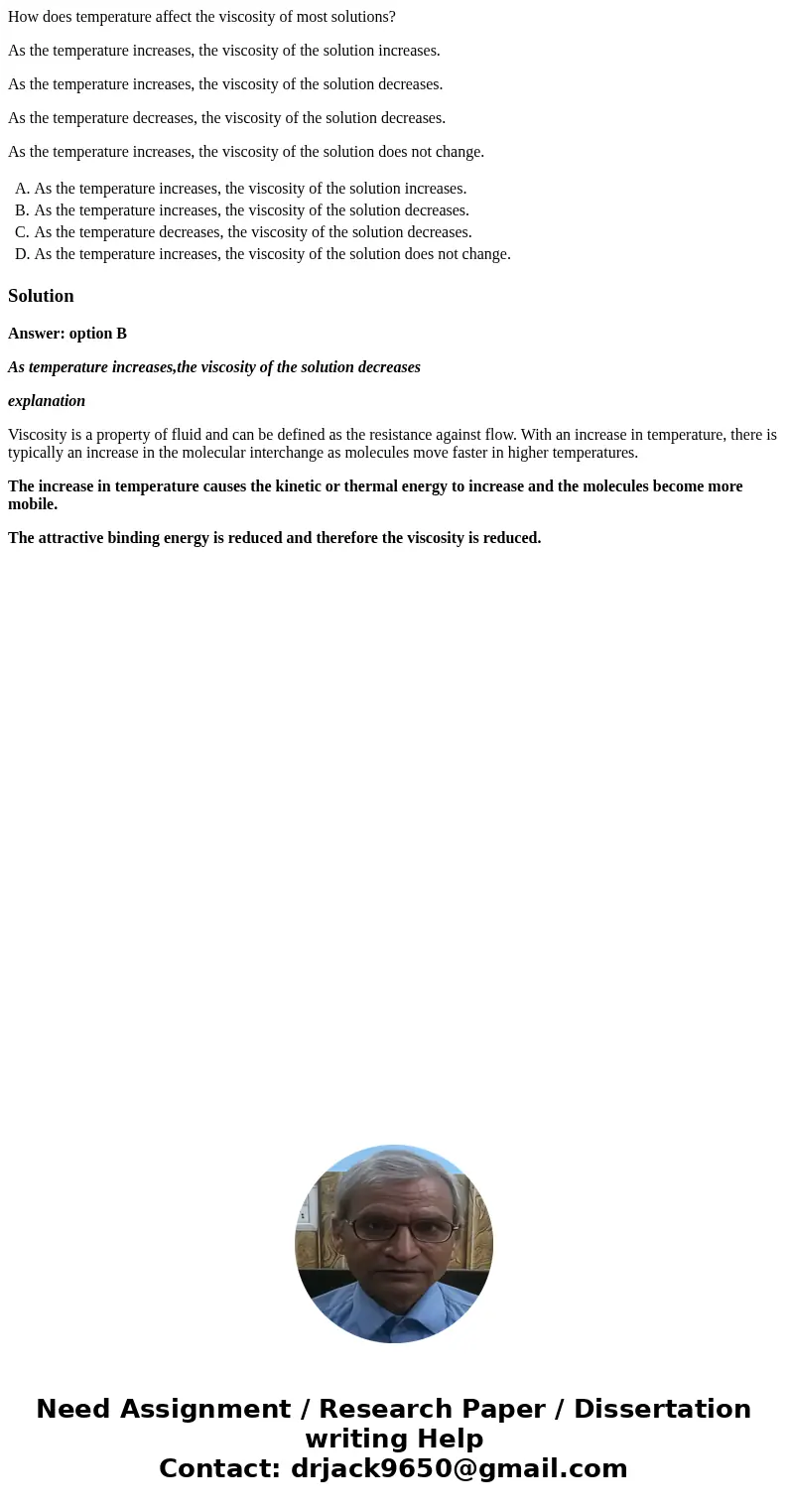How does temperature affect the viscosity of most solutions
How does temperature affect the viscosity of most solutions?
As the temperature increases, the viscosity of the solution increases.
As the temperature increases, the viscosity of the solution decreases.
As the temperature decreases, the viscosity of the solution decreases.
As the temperature increases, the viscosity of the solution does not change.
| A. | As the temperature increases, the viscosity of the solution increases. | |
| B. | As the temperature increases, the viscosity of the solution decreases. | |
| C. | As the temperature decreases, the viscosity of the solution decreases. | |
| D. | As the temperature increases, the viscosity of the solution does not change. |
Solution
Answer: option B
As temperature increases,the viscosity of the solution decreases
explanation
Viscosity is a property of fluid and can be defined as the resistance against flow. With an increase in temperature, there is typically an increase in the molecular interchange as molecules move faster in higher temperatures.
The increase in temperature causes the kinetic or thermal energy to increase and the molecules become more mobile.
The attractive binding energy is reduced and therefore the viscosity is reduced.

 Homework Sourse
Homework Sourse